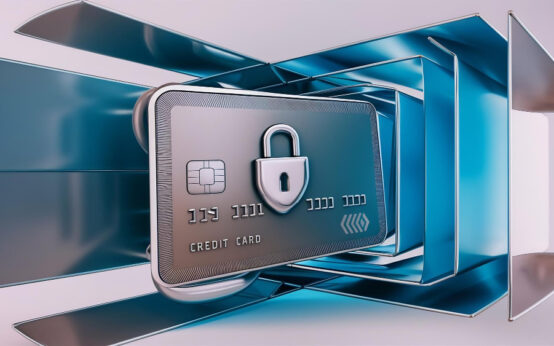Looking to boost your credit score? Learn how to improve your credit score with a credit card by following these actionable tips. From understanding your credit score to using your credit card responsibly, we’ve got you covered. Dive into these essential steps to start seeing positive changes in your credit report.
Understanding Your Credit Score
Your credit score is a numerical expression that represents your creditworthiness. It is calculated based on your credit history, which includes the number of open accounts, total levels of debt, and repayment history. The score typically ranges from 300 to 850; the higher your score, the better your credit.
Key Factors
Several factors influence your credit score. Payment history is the most critical, accounting for 35% of your score. This includes whether you’ve paid past credit accounts on time. Amounts owed is another significant factor, representing 30% of your score. This looks at the total amount of credit and loans you’re using compared to your total credit limit.
Length of credit history is 15% of your score and includes how long your credit accounts have been open. The types of credit you use also play a role; having a mix of credit cards, retail accounts, installment loans, and mortgage loans can positively impact your score.
Finally, new credit inquiries, which make up 10%, can lower your score slightly if you’ve recently opened several new accounts.
Improving Scores
To improve your credit score, focus on making timely payments and reducing your overall debt. Consistently paying off your balances and maintaining low credit utilization rates will contribute positively. Avoid opening too many new credit accounts in a short period; this can be a red flag to lenders.
Choosing the Right Credit Card

Selecting a credit card is crucial for improving your credit score. There are various types of credit cards, each designed for different needs. Rewards credit cards offer points or cash back for spending, while secured credit cards require a deposit and are ideal for those with no or poor credit history.
Consider the annual percentage rate (APR) of the card. A lower APR means you will pay less in interest. Some cards offer a 0% intro APR, which can be beneficial if you plan to carry a balance initially.
Look for cards with no annual fees and additional benefits, such as free credit score monitoring, fraud protection, or rental car insurance. These extras can add value to your choice.
Read the terms and conditions carefully, focusing on things like late payment fees, foreign transaction fees, and grace periods. Understand the card issuer’s policies on credit limits and penalties to avoid unexpected costs.
Ultimately, the right credit card should match your financial habits and goals. By choosing wisely, you can make strides towards a better credit score while enjoying the perks that come with responsible usage.
Using Your Credit Card Responsibly
Using your credit card responsibly is crucial for improving your credit score. Start by keeping track of your spending. Use a budgeting app or notepad to ensure you don’t exceed your limits.
Pay your bills on time to show lenders that you are reliable. Consider setting up automatic payments to avoid missing a due date.
Keep your credit utilization ratio low. This means using less than 30% of your available credit.
Don’t close old credit card accounts. These accounts contribute to the length of your credit history, which can positively impact your score.
Make informed decisions when using your credit card. Avoid impulsive purchases and always be mindful of how it will affect your credit.
Monitoring Your Credit Report

Stay Updated with Regular Checks
To maintain a healthy credit score, it’s crucial to regularly monitor your credit report. This helps you detect any inaccuracies or signs of fraudulent activity early. Consistent checks can also help you track your progress as you work on improving your credit score.
There are several free online services that allow you to check your credit report from the three major credit bureaus: Equifax, Experian, and TransUnion. These services can notify you of any changes to your report, ensuring you stay informed.
When reviewing your credit report, pay attention to key details such as your payment history, credit utilization ratio, and current debts. Identifying and resolving errors promptly can prevent negative impacts on your score.
Monitoring your credit report also gives you insights into your spending habits. By understanding what contributes to your credit score, you can make more informed financial decisions and effectively manage your credit cards.
Avoiding Common Credit Mistakes
Making mistakes with your credit can harm your financial health and be hard to recover from. One common mistake is missing payments. Payment history is a significant factor in your credit score, so always pay at least the minimum amount due on time.
Another mistake is maxing out your credit card. High credit utilization, or using a large percentage of your available credit, can negatively impact your credit score. Aim to keep your utilization below 30%.
Also, applying for too many credit cards in a short time can appear risky to lenders. Multiple credit inquiries can lower your score. Choose your credit cards wisely and space out your applications.
Avoid closing old credit accounts. Older accounts increase your credit history length, which benefits your score. If you must close an account, ensure it’s one with short history.
Lastly, not reviewing your credit report regularly can lead to overlooking errors or signs of identity theft. Regularly check your reports to ensure they are accurate and up to date.



 Best credit cards secured: your path to a stronger credit history <p style='text-transform:none; line-height:20px !important; font-size:16px; font-weight:normal; color:#424242; margin: 0px; margin-top:10px;'>They offer a smart way to show lenders you’re serious about managing your finances.</p>
Best credit cards secured: your path to a stronger credit history <p style='text-transform:none; line-height:20px !important; font-size:16px; font-weight:normal; color:#424242; margin: 0px; margin-top:10px;'>They offer a smart way to show lenders you’re serious about managing your finances.</p>  The best credit cards for lounge access: your key to premium airport comfort <p style='text-transform:none; line-height:20px !important; font-size:16px; font-weight:normal; color:#424242; margin: 0px; margin-top:10px;'>With these cards, you have exclusive access to lounges, offering comfort while you wait for your flight.</p>
The best credit cards for lounge access: your key to premium airport comfort <p style='text-transform:none; line-height:20px !important; font-size:16px; font-weight:normal; color:#424242; margin: 0px; margin-top:10px;'>With these cards, you have exclusive access to lounges, offering comfort while you wait for your flight.</p>  Safe, simple, and fun: discover the best debit cards for kids <p style='text-transform:none; line-height:20px !important; font-size:16px; font-weight:normal; color:#424242; margin: 0px; margin-top:10px;'>These cards offer the flexibility and convenience that both parents and kids need.</p>
Safe, simple, and fun: discover the best debit cards for kids <p style='text-transform:none; line-height:20px !important; font-size:16px; font-weight:normal; color:#424242; margin: 0px; margin-top:10px;'>These cards offer the flexibility and convenience that both parents and kids need.</p>